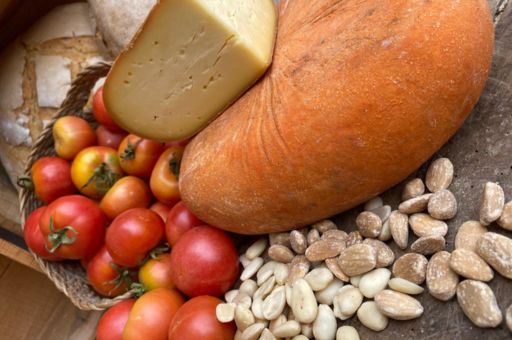The Directorate-General for Agri-food Quality and Local Produce has analysed consumption on the island of Mallorca of Mahón-Menorca cheese and sobrasada, ensaimada, olive oil, olive and almonds from Mallorca.
TDB keeps you informed. Follow us on Facebook, Twitter and Instagram
A study carried out by the Government shows that the majority of consumers say they buy food from the Balearic Islands with PDO or PGI when this is not the case
The Conselleria de Agricultura, Pesca y Medio Natural, through the Dirección General de Calidad Agroalimentaria y Producto Local, has published the data from the fifth and final part of the Study on the consumption of PDO/PGI foods on the island of Mallorca. The main objective of this document is to know the attitude of consumers towards food from the Balearic Islands with Protected Designation of Origin (PDO) and Protected Geographical Indication (PGI), as well as to analyse the degree and frequency of consumption of these foods, the profile of consumers and the evolution of consumer behaviour concerning the study done in 2016 and 2018. The fieldwork has been carried out in different parts of Mallorca and a total of 1,019 people living on the island between the ages of 25 and 65 (79.98% women and 20.02% men) have been interviewed.
One of the main findings is that the number of people who say they buy PDO/PGI food from the Balearic Islands has increased compared to 2018 and 2016. Thus, ensaimada de Mallorca (89.2%), Mahón-Menorca cheese (87.4%) and sobrasada de Mallorca (79.5%) are the foods that residents in Mallorca say they buy the most. Analysing the data, it can also be said that the purchase of PDO/PGI foods is generally occasional, once a month or less, except for Mahón-Menorca cheese, where the majority (more than 61%) buy it every week.
In this regard, the director general of Agrifood Quality and Local Product, Joan Llabrés, pointed out that ‘although the number of people who say they buy food registered under the PDO or PGI has increased considerably since 2016, the marketing data leads us to believe that they are buying products from brands that are not protected’.
As for Mahón-Menorca cheese, 87.4% of people say that they buy Mahón-Menorca cheese, a considerable increase compared to previous years. Moreover, consumption is fairly frequent, since the majority (over 61%) buy it every week. People born in the Balearic Islands are the biggest consumers.
About sobrassada from Mallorca, 79.5% of people say they buy it, especially consumers from Palma, more than those living in the Part Forana.
89.2% of people say that they buy Mallorcan ensaimada, and women are the main consumers, but, according to the marketing data of the PGI Ensaimada de Mallorca, it can be concluded that most buyers consider that all ensaimadas sold in Mallorca are Mallorcan ensaimadas when this is not the case.
As regards the consumption of Mallorcan olive oil, 67% of people buy it. The survey data show that people under 46 years of age and born in the Balearic Islands are more likely to consume Mallorcan olive oil, as are those who live in the Part Forana. As far as consumption of Mallorcan olive oil is concerned, the survey shows that 67.5% of people buy Mallorcan olive oil and that consumers under the age of 46 are the main consumers.
Consumption of Mallorcan almonds has also increased, by 60.3% in 2023 (in 2018 it was 20.5%). People over the age of 45 who buy at the market are the biggest consumers of this foodstuff.
Once again, both in the case of Mallorcan olive oil and olive oil and Mallorcan almonds, the marketing data do not coincide with consumers’ perception of purchases. ‘Thanks to these studies, we can conclude that consumers appreciate food from the Balearic Islands and are willing to buy them and incorporate them into their daily lives. These surveys show us that more work needs to be done, both by the administrations and by producers, so that consumers can differentiate a PDO or PGI product from one that is not, concludes Joan Llabrés.
